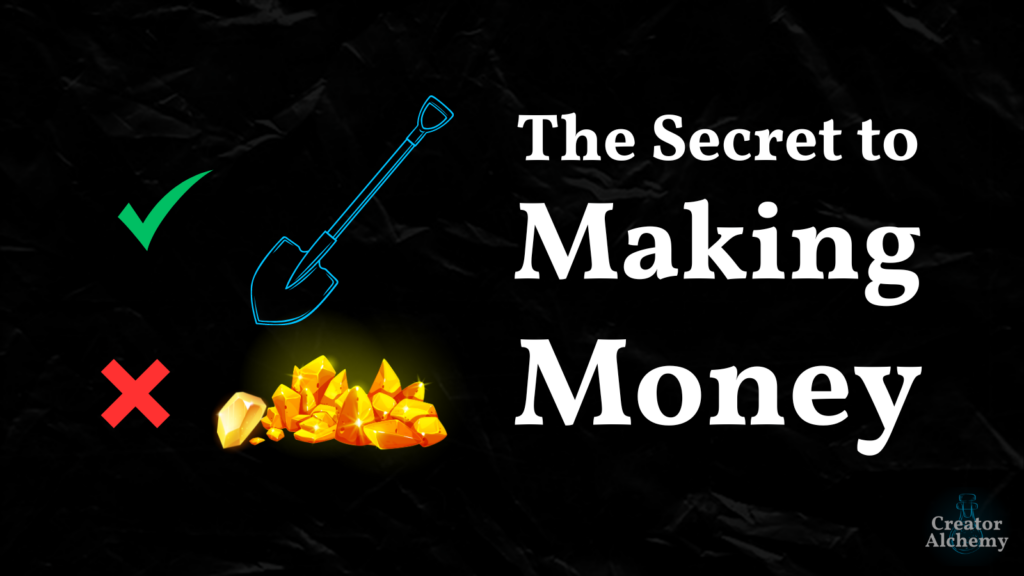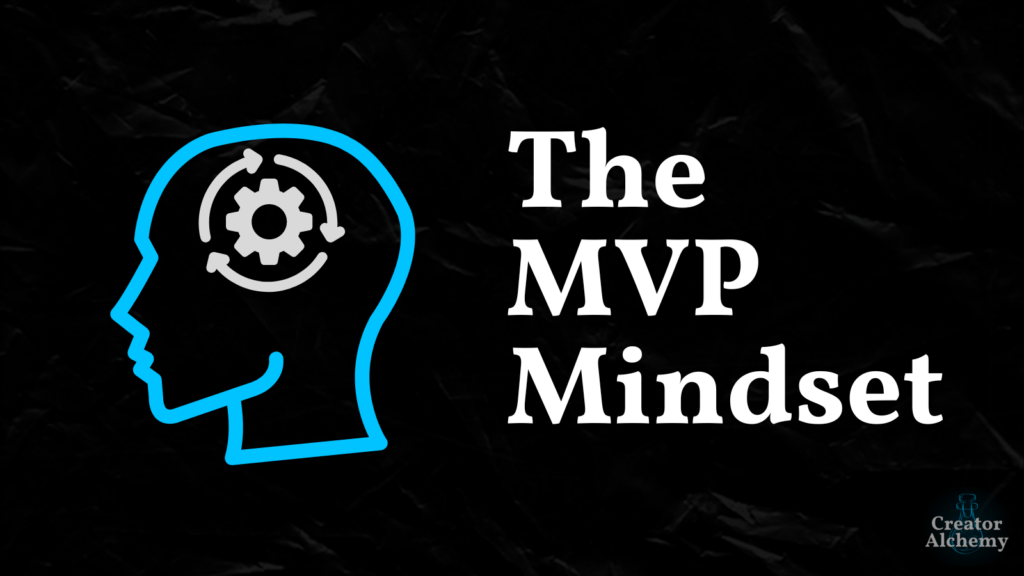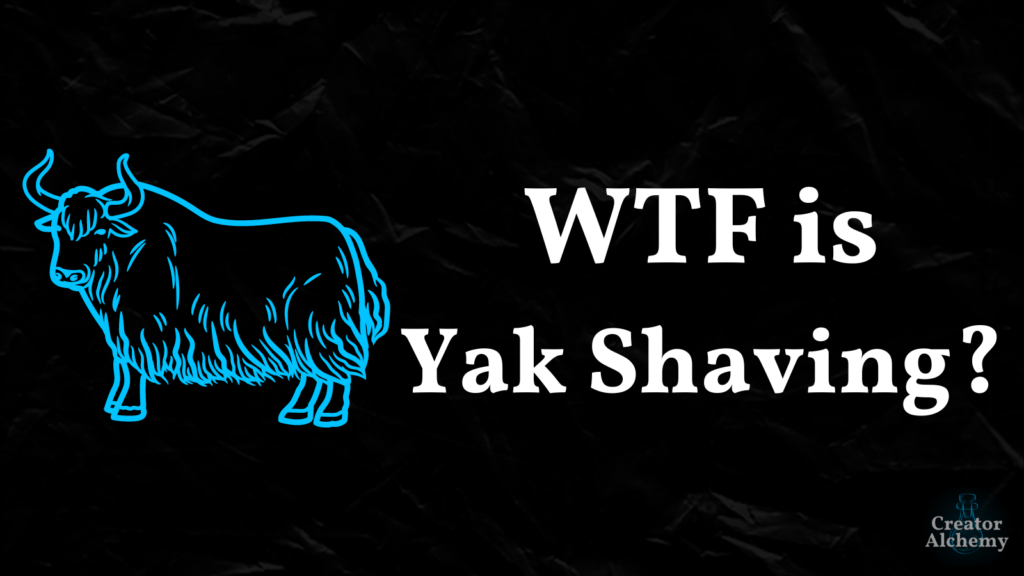What if you could peek into the creative genius that unites incredible artists like:
- Jay-Z
- Run-DMC
- Linkin Park
- Jonny Cash
- Public Enemy
- The Beastie Boys
- The Red Hot Chili Peppers
And countless others?
You can.
His name is Rick Rubin, and he’s one of—if not the—most sought-after music producer in history.
“Rubin is hands down the dopest producer ever that anyone would ever want to be ever.”— Dr. Dre
Here are 6 lessons from Rick Rubin to help you unleash your creativity so you can make something truly remarkable…
•••
Lesson #1 Over-Write, Then Whittle
When Tim Ferriss asked Rick Rubin how he approaches producing a hit album, Rubin said,
“If I wanted to release 10 [songs for a completed album], I would be working on 30 to get to 10 to release. So everything’s the ‘best of.’”
As creators, it’s easy to fall into the trap of trying to obsess over making each thing we do “perfect.” But nothing in life is perfect—perfection is unattainable. Which means perfectionism is expecting ourselves to attain the unattainable (more on this in Lesson #4).
When we’re too precious about creating the first 10, we hold ourselves back from creating the best 10.
If you’re trying to complete a 10-song album (or book, anything), it feels logical to focus on only making 10 and putting everything you have into them.
But if, instead, you over-wrote and created 30, 40, or even 100 songs, then whittled them down to 10—those 10 will be infinitely better than if you’d only endeavored to write 10 from the beginning.
I’ve started taking this approach with titles and thumbnails for my articles and YouTube videos.
I set the goal of brainstorming at least 10 title ideas. Sometimes I nail it by the 4th one, but I still go to at least 10.
The best one is never the first one. And the first one is never the best one.
This process of iterating and distilling is how you make something truly remarkable.
•••
Lesson #2 Do Whatever It Takes, For as Long as It Takes
When Tim Ferriss asked Rick Rubin about how he approached writing his book, The Creative Act: A Way of Being, Rubin said,
“I thought of it as this…I’m willing to do whatever it takes, for as long as it takes for it to be as good as it could be…It was a general conversation over years about the philosophy of the creative process and then looking, at one point, a thousand pages of talk that’s all about creativity, but it’s not in any order and it’s not in any form. And then it was years to figure out how to turn that into what this is.”
It’s easy to get caught up looking for hacks and shortcuts—relying on AI to come up with content ideas, using templates, and getting frustrated when you don’t get immediate results and recognition.
But if you spent 1/10th of the time and effort you put into avoiding the work into actually doing the work, you’d be 10X ahead of where you currently are.
There’s no substitute for doing the work. Tons of people will claim they’ve found a substitute, but that’s because they have some bullshit to sell you.
The people who truly succeed embrace the work, develop their craft, and do whatever it takes for as long as it takes—because that’s how you make something truly remarkable.
•••
Lesson #3 Take Pride in the Process, Not the Outcome
On an episode of Armchair Expert, Dax Shepard asked Rubin about how it feels when he puts a ton of work into an album but it doesn’t become a huge success right out the gate.
“It doesn’t mean that it’s bad. It means a lot of things. It could mean that it’s bad. It could mean wrong place wrong time—something else happened at that time that took the light away, sucked all the air out of the room and people weren’t ready for that.”
Rubin and Shepard go on to talk about several examples, like:
- When the movie Idiocracy came out, Shepard was proud of it and knew it was great, but he didn’t meet anyone who’d seen it for 5 years after the movie premiered. But 20 years later, it’s a huge success.
- Bruce Springsteen was going to get dropped from his record label after putting out multiple albums that didn’t land. Then he released one that went big and the rest is history.
- The band U2 didn’t take off until their 4th album, then they saw a meteoric rise in fame.
And most creators in the YouTube space are familiar with how Mr. Beast uploaded 1,000 videos over years that no one watched before he gained traction.
What separates these artists and creators who’ve succeeded from the countless who quit? They were able to stick with it long enough to gain traction because they took pride in the process and knew what they were creating was—or would one day be—great.
They just had to wait for the world to catch up.
Because as creators, we control the process—not the outcome of our work.
“If people get it, great. But if they don’t, it doesn’t matter because you know it. You know it. You feel it. And the things after that, for everyone to connect to it, are all out of your control.” — Rick Rubin
Chasing the external and focusing on the outcomes is a surefire way to burn out and give up when you don’t get immediate results.
But if you focus on what’s within your control—the process—and put out work you truly believe in, you’ll make something truly remarkable.
•••
Lesson #4 Perfection is Unrelatable
“It’s not about being perfect. Perfection isn’t what you’re aiming for. It’s not. You think it is. But once you understand that it’s not, you can relax. You start to realize the best work, the things that are imperfect, is what gives it its personality. It’s what gives it its humanity. It’s what gives it its life. Otherwise, a robot could do it. And none of us like robots…We connect to the reality in things.” — Rick Rubin
Think of any creator you resonate with and are inspired by—they’re not perfect. They’re quirky, weird, or are in some way imperfect.
Why?
Because perfection is unattainable and unrelatable.
It’s tempting to think you have to pretend to be perfect, or to trick yourself into believing you can’t hit publish until your thing is perfect.
But that’s not how the world works.
We connect over our shared adversities, vulnerabilities, and imperfections as humans (I go deeper into this concept in “The Art of Tactical Vulnerability,” if you’re curious).
To be human is to be imperfect.
So if you want to connect with other humans, embrace some of your sublime imperfections and you’ll make something truly remarkable.
•••
Lesson #5 When You Hit a Wall, Take a Walk
When you run into a problem or feel stuck, how do you usually handle it?
You could try to brute-force yourself to solve the problem.
You could spend a bunch of money on fancy productivity apps.
You could try to build the perfect ritual to prime your mind to kick into problem-solving mode.
Or you could just take a fucking walk.
If it works for Rick Rubin, it’ll probably work for you:
“I recognized the fact that, if I was struggling with a problem, and then I gave up and went swimming, often the solution would appear while I was swimming—when I was not thinking about it at all, just focusing on the swimming. I’d let the problem go, but then it would just arise. It’s like oh, seems like movement has something to do with it.
And then I would notice the same thing on walks and I would notice even driving the car. When you’re driving, there’s a part of you that’s almost on autopilot. If you drive enough, you might miss 10 minutes of the drive, even though you’ve been piloting the vehicle for 10 minutes, but you have no idea—you’re checked out. But there’s a part of you that’s still doing it.
And, for some reason, when that’s engaged, you can get more creative.”
Why does this work?
One reason is because movement—walking, swimming, driving, whatever—is a form of what psychologists call bilateral stimulation.
In psychobabble terms, bilateral stimulation works by “decreasing emotional activation.” This means if you do something that activates both sides of your body (walking requires you to move your right and left legs, hence bilateral—two sides) this movement can be soothing.
When you’re calmer, you’re in a better headspace to solve problems.
When you’re struggling with a problem, your stress and frustration cloud your judgement.
But if you do some kind of bilateral stimulation like walking, you create a psychological environment that primes your mind for clarity—on what matters, what doesn’t, and which path is the best one for you moving forward.
Which is why the greatest thinkers throughout history all espouse the power of cultivating stillness by taking a walk to calm your mind, break through plateaus, and develop supreme clarity about your situation and the best path forward.
I go more in-depth with strategies to cultivate stillness, and many other concepts related to clarifying what matters and building your life and business aligned with your values in my course, Build an Intentional Life (think of it like private coaching, but in a self-paced format).
Sometimes, taking a walk is exactly what you need to make something truly remarkable.
•••
Lesson #6 Your Job is to Do the Noticing
AI is all the rage right now.
Tons of creators are flocking to AI like it’s a panacea—a cure-all for everything that makes being a creator so difficult.
But what does Rick Rubin think of AI and how it fits into creativity?
“I think of it as an end. It doesn’t strike me as interesting. As a means, it could be helpful. For example, what’s interesting about the things we make, isn’t the making. The computer’s doing the making, it’s not doing the noticing.
So I might ask, in the same way that we spend time like hip hop producers do crate digging, where we’ll listen to hundreds of old albums track by track, looking for a moment that’s interesting. We’re not looking for the song, we’re not looking for the piece of work. We’re looking for a moment where things go right or a moment that just strikes us. And then that’s an element that we can integrate into our work.
So I might consider having a music-making program, constantly making music, and then listen for…any time there was a moment that made me look, that would catch my ear, I would sample that moment and try to build something with human taste, with that as a seed to build from or as an element used. Because I think what’s interesting, the human curation aspect of art, it’s what makes it art.”
This is why I don’t want AI summaries of books and podcasts. It might be “more efficient” than reading myself (especially because I’m a slow reader). But most of the takeaways I’ve gotten from books and podcasts are from a single sentence or example—or a thought I had that was triggered by a single sentence or example. No AI summary would have included these seemingly insignificant moments.
Because my job is to do the noticing. And I can’t notice if I’m not the one actively engaging with the world.
AI doesn’t have unique experiences it can pull from—you do.
AI doesn’t have a backstory that resonates with people—you do.
AI doesn’t have quirks that cause it to see the world differently—you do.
All of these things that help you as a creator attract a deep audience and create thoughtful, inspirational, and valuable content require you to be at the helm doing the noticing, connecting the dots, and sharing your unique perspectives with the world.
Don’t outsource your creativity.
Outsource the non-creative stuff:
- Editing A-roll
- Creating transcripts
- Organizing information
Let AI do the mundane, so you can make something truly remarkable.
•••
Final Thoughts
As creators, we all want to make something truly remarkable. But the creative act is wreathed in mystery.
No one has figured out how to seduce the muse on a consistent basis.
No one has figured out how to pull inspiration from thin air.
No one has figured out how to brew an elixir of creativity.
But Rick Rubin has figured out a few things that have helped him make something (many somethings) truly remarkable.
Maybe we can do the same.
I’ll be putting more of these into practice in my own life.
I hope you’ll do the same.
Cheers to making something truly remarkable.



